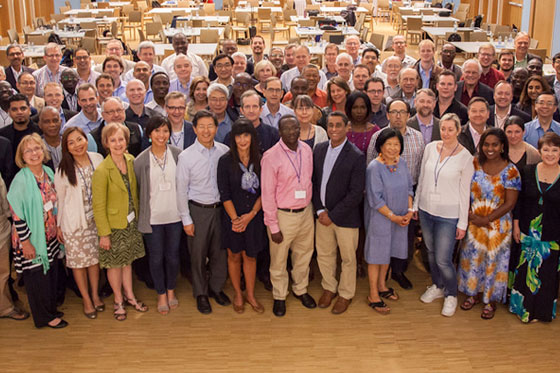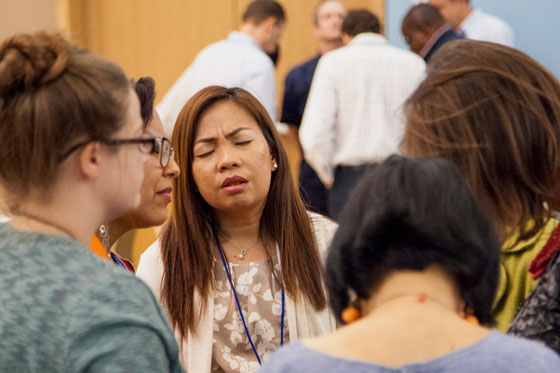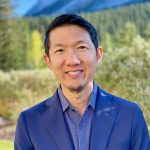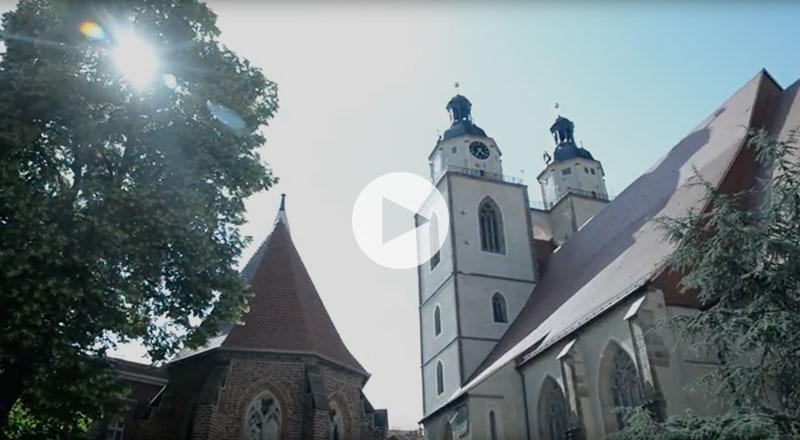‘What can we do better together than if we just continued to work independently?’
Phill Butler, Lausanne Catalyst for Ministry Partnerships and Networks, shared this challenge on the first day of Wittenberg 2017, speaking to a beautifully unique gathering of influential men and women in global mission today. Butler’s question deserved a long pause for reflection. And it reminded us of why we were together.
Back in 2013, I was approached by Dr Erhard Berneberg, chair of Lausanne in Germany, who extended a very kind invitation to hold our 2017 board meetings in the city of Wittenberg—the city of Martin Luther and his 95 Theses—to commemorate the 500th anniversary of the Reformation. But soon we began envisioning something bigger. We asked ourselves, ‘What might the Lord want us to do that would serve the global church and advance global mission?’
And that is how the vision of Wittenberg 2017 was born.
But if there is one phrase that is the antithesis of all that Wittenberg 2017 hoped to achieve, it is this one:
‘I don’t need you.’
This is not the same as ‘I don’t value you’ or ‘I don’t like you’. There is a great deal of respect and appreciation among global mission leaders and their ministries in our day. I’m very thankful for that.
But ‘I don’t need you’ stands in the way of what is the greatest strategic opportunity for global mission today:
Partnership.
There are currently over 500 global mission networks in the world. They span various ministry foci such as prayer, the arts, refugees, Buddhists, unreached People Groups, and more. The lost opportunity is when we operate in isolation from each other; when we decide we don’t ‘need’ each other.
Wittenberg 2017, held from 12-14 June, allowed for a concrete example of what we can do if we will seek genuine, humble, and strategic partnerships for global mission.
The 90 invited participants were leaders and influencers of tremendous experience and expertise, many who are commonly invited as speakers themselves. But Wittenberg didn’t have any plenary speakers. A spirit of humility pervaded the gathering as these women and men with impressive resumes gathered together as collaborators, listeners, and partners.

This may have been the riskiest gathering Lausanne has ever held, in that we did not have any planned speakers or predetermined outcomes. But this openness gave way to a quiet and strong expectation for the Holy Spirit to be with us in guidance, conviction, and joy. Lausanne gatherings are of course always dependent on the Holy Spirit, but as our first ‘open forum’ event, we were in particularly desperate need of the Holy Spirit.
The global church rose up alongside us who were gathered in Wittenberg through a surge of prayer support, seeking God together with us. It was exhilarating to see. And prayers were answered.
Phill Butler’s question of what we can do better together was returned in a myriad of ways, through the first steps toward genuine and deep collaboration. It was thrilling in our final morning together as every single Working Group introduced action plans and strategic insights—plans and visions that have the potential to impact the world within the next three to five years, and beyond. (Learn more in the press release from the gathering.)
I’m delighted to share a glimpse of this with you through our short documentary of Wittenberg 2017. This 9-minute documentary provides a window into the uniqueness of this gathering, and I pray that you will be encouraged to be in prayer with us as the Working Groups take their next steps.
As we relied on the Holy Spirit to guide us at Wittenberg 2017, we continue to rely on him to spread the impact of this gathering to the ends of the earth—that all may know Christ!
Learn more about Wittenberg 2017:


